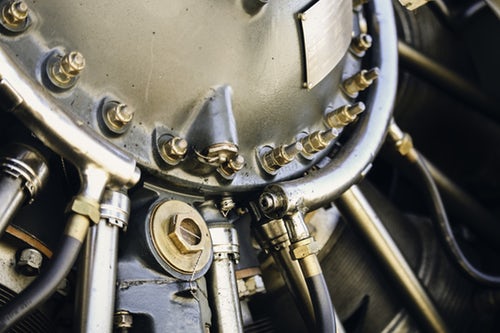If you don’t have the right grades to enrol directly on to the BEng (Hons) Mechanical Engineering degree, you could opt to start your studies with a foundation year. The extra year is intended to give you the best possible preparation for success on the degree pathway. It has been designed to develop your skills in mechanics and mathematics – these are important areas of study which will underpin your learning on the degree course.
You’ll study introductory modules relevant to the degree course whilst developing key skills for academic study. Successful completion of the introductory foundation year will allow you to progress onto the Mechanical Engineering degree which is accredited by the Institution of Mechanical Engineers (IMechE), and the Engineering Council.
What you will study
This mechanical engineering degree includes the computing, mathematical and physical sciences required to design, develop and manufacture a range of engineering systems.
You’ll study the core areas that underpin mechanical engineering, which are material science, engineering mechanics, thermofluids, manufacturing systems and engineering design. This includes extensive laboratory experience, so you can gain the skills needed to test systems that you have analysed and constructed.
You’ll also study a management, business and professional practice module. This will develop your initiative, and effective communication and interpersonal skills, to achieve the high level of technical leadership required in a modern engineering environment. Your new skills will be further tested through group and individual research and design projects.
Foundation Year: Mechanical Engineering Degree
The Foundation Year will give you a good understanding of our engineering courses and provide you with a good numerical background to support you throughout the remainder of the degree. Following your initial foundation year, you will progress onto the modules studied as part of your award.
- Foundations of Mathematics – 20 credits
- Further Foundation Maths for Engineers – 20 credits
- Essential Engineering Skills – 20 credits
- Engineering Project – 20 credits
- Foundation Engineering Principles – 20 credits
- English for Engineering (optional) – 20 credits
- Fundamentals of Mechanical Engineering (optional) – 20 credits
Year One: Mechanical Engineering Degree
- Mathematics for Mechanical and Aeronautical Engineers – 20 credits
- Design and Manufacture – 20 credits
- Engineering Computing Applications – 20 credits
- Engineering Mechanics 1 – 20 credits
- Electrical Science – 20 credits
- Thermofluids 1 – 20 credits
Year Two: Mechanical Engineering Degree
- Further Mathematics for Mechanical and Aeronautical Engineers – 20 credits
- Sustainable Engineering Design – 20 credits
- Engineering Mechanics 2 – 20 credits
- Control and Instrumentation – 20 credits
- Thermofluids 2 – 20 credits
- Engineering Materials – 20 credits
Optional
Supervised Work Experience (year out in industry) – 120 credits
Year Three: Mechanical Engineering Degree
- Individual Project (BEng) – 40 credits
- Thermofluids 3 – 20 credits
- Design and Analysis – 20 credits
- Mechanics and Control – 20 credits
- Industrial Management – 20 credits
Zobacz więcej na stronie uniwersytetu >>
Wiza studencka do Wielkiej Brytanii
Aby studiować w Wielkiej Brytanii potrzebujesz wizy studenckiej. Aby złożyć wniosek o taką wizę studencką musisz zdjać certyfikat językowy na poziomie B2.
Uważaj! Do celów wizowych musisz wybrać wyłącznie egzamin w wesji Secure English Language Test (SELT) UKVI .
Co to jest test SELT UK VI registration? Przeczytaj więcej o testach SELT UKVI >>




















